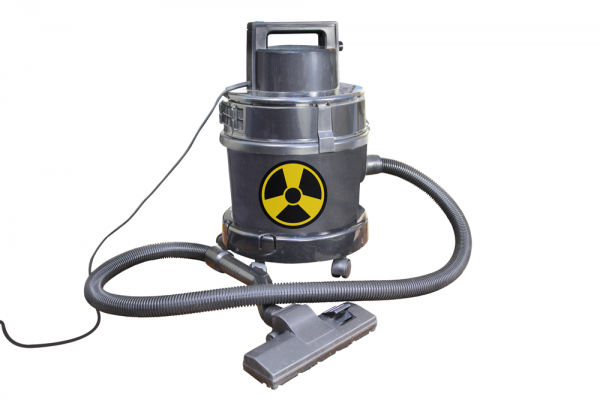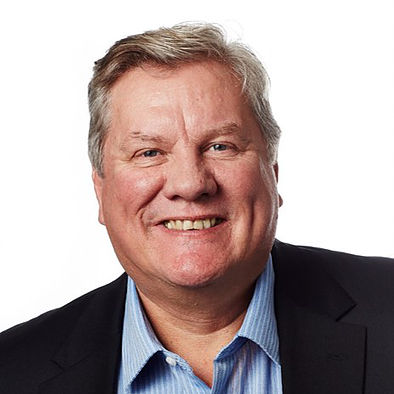The Rise and Rise of Bio-Refineries
It is very difficult to predict where technology will end up. Personally, I am firmly of the view that if you can imagine it, it is probably possible. Think of the communicators used in the original 1960’s Star Trek television series as an example. But, just because it can be done doesn’t mean it should be.
Consider Alex Lewyt, the president of Lewyt Vacuum Cleaner company, that sold the lightest weight, heavy duty vacuum cleaner in the World! Mr Lewyt not only had formidable vision but a good grasp of hyperbole. In 1955, Mr Lewyt was said to have asserted, “Nuclear-powered vacuum cleaners will probably be a reality within ten years.” I’m guessing that last bit of lint, that you can never get off the carpet, would have been no match for the Lewyt nuclear vacuum.
Just because something can be done, doesn’t mean it’s a good idea. No judgement.
“Nuclear-powered vacuum cleaners will probably be a reality within ten years.” Alex Lewyt, President of Lewyt Vacuum Cleaner Company, 1955.
[/fusion_text][fusion_text]But of course Mr Lewyt hasn’t been alone in his ability to get things completely wrong. Here are some of my favourite predictions over the last century or so as it relates to new trends in technology.
“I think there is a world market for maybe five computers.”
Thomas Watson, president of IBM, 1943.
“Television won’t be able to hold on to any market it captures after the first six months. People will soon get tired of staring at a plywood box every night.”
Darryl Zanuck, executive at 20th Century Fox, 1946
“There is no reason anyone would want a computer in their home.”
Ken Olsen, founder of Digital Equipment Corporation, 1977
“Apple is already dead.”
Nathan Myhrvold, former Microsoft CTO, 1997
But it’s not just space age futurists who can run into trouble – there has always been a tendency to overstretch possibilities – often a mixture of overconfidence and too much or little knowledge. For example in 1876, William Preece, from the British Post Office opined (reflecting the values of the Empire no doubt), “The Americans have need of the telephone, but we do not. We have plenty of messenger boys.”
In 1903: “The horse is here to stay but the automobile is only a novelty – a fad.” advised President of the Michigan Savings Bank to Henry Ford’s lawyer, Horace Rackham when he was considering investing in the Ford Motor Company.
1921: An entertainment stalwart went into writing to point out that: “The wireless music box has no imaginable commercial value. Who would pay for a message sent to no one in particular?”
There also seems to have been an ongoing need to improve the US postal service with modern technology (using Australia as an example of how far the technology would take us). In 1959, the then US Postmaster General, Arthur Summerfield, predicted that: “Before man reaches the moon, your mail will be delivered within hours from New York to Australia by guided missiles. We stand on the threshold of rocket mail.”
One imagines Arthur spent most of his life in a disused rocket silo with aluminium wrapped around his head to shield himself from those pesky alien transmissions.
But, even very clever people can miss the movement and possibilities that technology might bring forward. In 1932, only 13 years before the first atomic bombs were dropped on Japanese cities, Albert Einstein observed: “There is not the slightest indication that nuclear energy will ever be obtainable. It would mean that the atom would have to be shattered at will.”
Yes, Albert, it would.
In 1959, the then US Postmaster General, Arthur Summerfield, predicted that: “Before man reaches the moon, your mail will be delivered within hours from New York to Australia by guided missiles. We stand on the threshold of rocket mail.”
What of us. How able are we to identify and fall in behind technology trends that are both exciting and disruptive to mainstream businesses.
The rise of the biorefinery is a case in point. Only twenty years ago, there were many people who, although excited by the idea of turning organic feedstock into valuable and important chemicals, were clear that the capability, markets and technology would not exist for the foreseeable future.
There is a metamorphosis underway in our industries that is even more surprising than the technologies being developed to convert waste straw into high octane fuel. Those who gainsayed the onset of the bio- revolution in the pulp and paper industry must feel very like the IBM managing director who seriously under predicted the rise of the computer.
Amongst other things, the upcoming Appita conference in Melbourne has an exciting and world class program related to bio related technologies and developments. Information and analysis around how the new bio economy is being brought forward, its applications and impact are being discussed. New manufacturing technologies like industrial internet, data analysis and material science are showcased. The increasing need for maintaining and improving quality while controlling costs to compete adequately in global markets is being addressed.
Perhaps the first thing to do to avoid being left behind is to see what is already being done and what is being planned. The 2017 conference is a good place to do that. So come along, park your nuclear vacuum cleaner and get ready for a ride into the future.


Your Presenter: Russell Allan
Managing Director, Aurelia Group Consulting
Editor of the APPITA Magazine
If on your paper machines, you need to minimise input costs, lower quality variability, minimise reject material and understand in more detail how paper machine process affects paper quality then you will find this webinar very useful.You’ll be surprised how easy the PSM-4 is to install and commission.
Once installed, find out how you can benefit from the PSM-4 sensor and the amazing things you can do with this new technology.
From this webinar, you will come away with a good understanding of the requirement for applying Aurelia’s on-line stiffness measurement to your paper machine as well as ideas for how you can generate benefit in your paper making operations.
